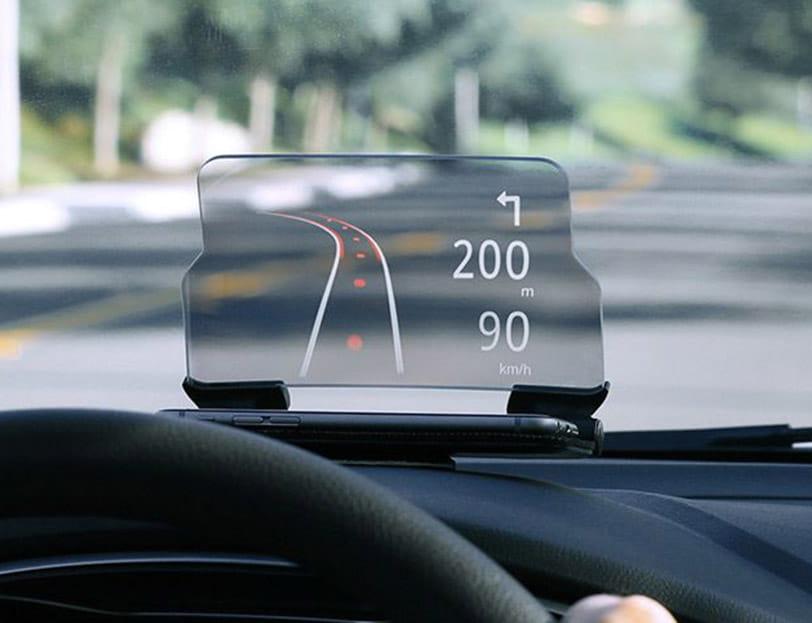Head Up Display Market Analysis: Automotive, Aviation, and Beyond

Introduction
The Head Up Display market has evolved from a niche military application into a critical component in various industries, most notably automotive and aviation. With its ability to enhance situational awareness and safety by projecting key information within the user's line of sight, HUD technology is rapidly expanding across both traditional and emerging markets. This article explores the HUD market’s growth trajectory, focusing on its diverse applications in automotive, aviation, and beyond.
Automotive Sector: The Dominant Force
1. Passenger Vehicles Driving Demand
In the automotive industry, HUDs have shifted from being luxury features to becoming more common in mid-range vehicles. They are now widely used to display:
-
Speed and navigation directions
-
ADAS alerts (e.g., collision warnings, lane departure)
-
Real-time traffic data and blind spot detection
The integration of HUDs with Advanced Driver Assistance Systems (ADAS) and augmented reality (AR) is revolutionizing in-car experiences, reducing driver distraction and improving safety.
2. Electric and Autonomous Vehicles Accelerating Adoption
Electric vehicles (EVs) and autonomous cars are pushing boundaries in human-machine interface (HMI) design. HUDs play a key role in:
-
Minimizing dashboard clutter
-
Displaying battery health and range info
-
Delivering intuitive AR-based navigation and obstacle detection
As automakers seek futuristic and safer user interfaces, the HUD market in this segment is expected to grow significantly through 2030.
Aviation Sector: Longstanding and Evolving Use
1. Military Aviation
HUDs were first developed for fighter jets, where quick access to targeting and navigation information was vital. Today, they remain indispensable in military aircraft for:
-
Combat flight data
-
Missile lock and radar targeting
-
Low-visibility landing assistance
2. Commercial Aviation
In commercial aviation, HUDs are gaining traction among airlines seeking enhanced pilot situational awareness, particularly in challenging weather conditions. HUDs support:
-
Runway alignment and approach precision
-
Altitude, airspeed, and flight path information
-
Compliance with aviation safety regulations
With increasing adoption of NextGen avionics systems, the aviation HUD market is expected to remain strong.
Beyond Automotive and Aviation: Emerging Applications
1. Defense and Tactical Operations
Outside of aircraft, HUDs are integrated into helmets and goggles used by ground forces and special ops teams. They offer real-time data overlays for:
-
Navigation and targeting
-
Night vision enhancements
-
Communication and command input
These systems are critical for modern battlefield operations and are gaining investment globally.
2. Consumer Electronics and Wearables
While still in its early stages, HUD technology is branching into consumer-focused devices, such as:
-
AR glasses and smart helmets
-
Motorcycle HUD displays
-
Sports and gaming gear
These applications emphasize HUD’s potential in entertainment, health monitoring, and real-time communication.
Market Trends and Growth Outlook
The global head up display market is expected to grow at a CAGR of over 20% through 2030. Key trends fueling this growth include:
-
Increasing focus on driver and pilot safety
-
Rapid development of AR and holographic HUDs
-
Broader availability in mid-range vehicles
-
Demand for connected and immersive user experiences
Key Players in the Market
Several leading companies are investing heavily in HUD R&D and partnerships:
-
Continental AG – Innovating AR HUDs for next-gen vehicles
-
Denso Corporation – Offering compact HUD solutions for global OEMs
-
Visteon Corporation – Known for digital cockpit integration
-
Nippon Seiki, Bosch, and Panasonic – Major suppliers to the automotive and aviation sectors
-
WayRay AG – Specializes in holographic AR HUDs for futuristic applications
Conclusion
The head up display market is no longer confined to aircraft cockpits or luxury car dashboards. It has become a versatile, high-growth technology influencing multiple sectors, including automotive, aviation, defense, and consumer electronics. As user interface expectations continue to evolve, HUDs are well-positioned to become a standard component across a range of platforms, offering enhanced safety, interactivity, and user engagement.
With innovation accelerating, the future of the HUD market promises exciting developments far beyond its origins.
- Art
- Causes
- Crafts
- Dance
- Drinks
- Film
- Fitness
- Food
- Jeux
- Gardening
- Health
- Domicile
- Literature
- Music
- Networking
- Autre
- Party
- Religion
- Shopping
- Sports
- Theater
- Wellness


